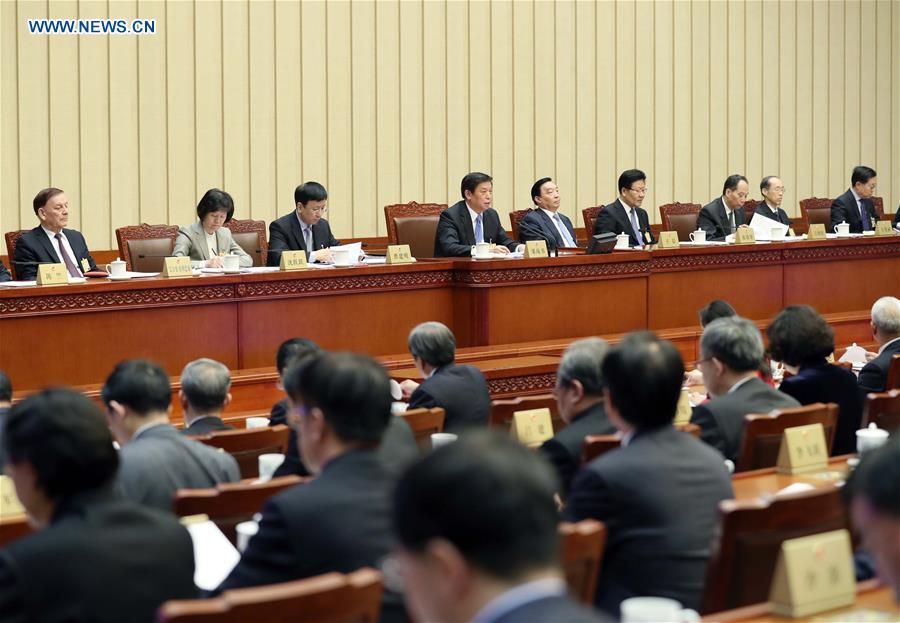
BEIJING, April 27 (Xinhua) -- China's top legislature on Friday concluded its bimonthly session, unanimously passing a landmark law to protect the reputation and honor of heroes and martyrs among other pieces of legislation.
Activities that defame heroes and martyrs, or distort and diminish their deeds will be banned under the new law, which takes effect on May 1.
The law also outlaws acts that glorify invasions, with offenders facing administrative or criminal punishments according to the severity of their actions.
Li Zhanshu, chairman of the National People's Congress (NPC) Standing Committee, said heroes and martyrs are the spine of the Chinese nation. Their deeds and spirits epitomize a key part of socialist core values.
Li called upon efforts to enforce the law to promote heroism, patriotism and rally behind the Chinese Dream of national rejuvenation.
Yue Zhongming, an official with the Commission for Legislative Affairs of the NPC Standing Committee, said at a press conference on Friday that it is correct to outlaw acts that praise invasions, noting that a handful of young people recently dressed in Japanese WWII army uniforms and spread the photos online to glorify the war.
The lawmaker said schools will be a priority area to enforce the law, giving young students correct guidance on history and culture to prevent such incidents from happening.
On Friday, the legislature also passed a law on people's assessors, adopted revisions to six laws, and approved two decisions including one to set up a specialized financial court in Shanghai.
The court, at the intermediate people's court level, will be responsible for commercial cases such as those involving securities, bills, financial lending, and administrative cases.
It will be inaugurated by the end of August, according to a Supreme People's Court official.
In the past three days, lawmakers have also heard and reviewed reports on environmental protection, agriculture, and rights protection for overseas Chinese.
Li said despite positive results China still faces prominent environmental problems. More work is needed to fight and win the arduous battle to control pollution.
He spoke of the importance of boosting agriculture and strengthening protection for overseas Chinese.
The NPC Standing Committee also released its legislative priorities in 2018, with laws on vehicle purchase taxes, farmland occupation taxes, community correction top on agenda.
The property tax law, personal income tax law, and minors protection law have all been put on the waiting list, although drafts may still make it to the top legislature for review this year.
The legislature will begin deliberating on individual books of a civil code in 2018. Compiling a civil code was a decision made by the central leadership. It is expected to be completed by 2020.
Li said the workload is heavy for the incumbent NPC Standing Committee in its first year. He urged lawmakers to work hard and not fear difficulties.









